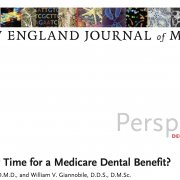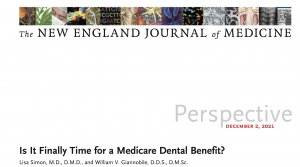7 days in healthcare (April 3rd-9th, 2023)

Summary
From the point of view of Biomedicine, vaccines against cancer and heart disease, based on mRNA technology, which are looming on the horizon 2030, seem to be the next great advance in medicine, potentially saving millions of lives. The Economist dedicates an article and an editorial to demonstrate the weak evidence for the therapy of gender transitions in adolescents, especially when they include pharmacological or surgical medication. Contrary to what had been a very popular assumption, moderate alcohol consumption does not produce health benefits, according to a study of more than 40 years published by the JAMA Network Open. Rather the opposite is true.
As regards Global Health, the WHO, born after the Second World War, is celebrating its 75th anniversary. He has emerged from the pandemic with injuries and issues, but acutely aware of his mission, purpose, and need for change. One of the problems it encounters is the discrepancies between countries in the discussion of a treaty on pandemics, which it intends to be approved in 2024. The Lancet publishes several articles on the commercial determinants of health, a subject of great interest. interest. Four industries – tobacco, unhealthy eating, oil and fossil fuels, and alcohol – are responsible for a third of deaths each year globally.
As for International Health Policy, in the United States, a federal judge in Texas has just banned the use of an abortion drug, which had been approved by the FDA more than 20 years ago. In France, the citizens’ convention, made up of 184 citizens chosen by lot, has just ruled in favor of euthanasia and assisted suicide, although with certain “red lines”. Macron wants to discuss the bill before the summer.
If we talk about National Health Policy (Spain), surgical waiting lists set a new record, according to the report made public by the Ministry of Health, with data as of December 31, 2022. Almost 900,000 people waiting for a surgical intervention. An absolutely delegitimizing element of the system. As is well known, the Ministry only makes public the waiting lists for surgical intervention or specialist consultations, but not for special tests (radiology, radiotherapy, ultrasound, etc.), on which there are no national data, although there are some autonomous communities. Interesting article published in Gaceta Sanitaria on the economic impact of including dental care in public coverage. This is an issue that the majority political parties have been pronouncing in favor of for several years, but nothing has been done on it. Spain is possibly the European country with the least percentage of its health spending devoted to dental care. The declarations of the Minister of Health of Catalonia are surprising, justifying the dismissal of the nurses who criticized the Catalan C1. Since this type of statement about specific dismissals is not common among regional ministers, it is to be assumed that there is an important political background. The decision of Navarra and Asturias to launch public companies, one for medical transport and another for a hospital laundry, is also surprising. Wouldn’t there have been the possibility of resorting to private initiative to solve these needs, perhaps more efficiently than through a public company?
In the field of Companies, internationally, agreement between Medtronic and Davita to launch Mozarc. At the national level, it is worth noting the start of work on the Viamed hospital in Tarragona, and the separation of the “pharmacy” and “chemistry” areas of the company Esteve.
Biomedicine
- Vaccines against cancer and heart disease will be ready by the end of the decade, around 2030. The system works simply as follows: after a biopsy, the cancerous mutation is identified; an algorithm identifies mutations that activate tumor growth; a messenger mRNA molecule is created with antigens to produce an immune response; it is injected; and, the immune reaction produces the cell mutation (https://www.theguardian.com/society/2023/apr/07/cancer-and-heart-disease-vaccines-ready-by-end-of-the-decade)
- Three monkeys pregnant with pseudoembryos open a window into the greatest enigma of the formation of a human being (https://elpais.com/ciencia/2023-04-06/tres-monas-prenadas-con-seudoembriones-abren-una-window-to-the-greatest-enigma-of-the-formation-of-a-human-being.html)
- Science article: Biogen’s promising Alzheimer’s therapy shrinks brain size. The extent of this alteration is not known, but it worries scientists (https://www.science.org/content/article/promising-alzheimer-s-therapy-and-related-drugs-shrink-brains)
- Article from The Economist: The evidence to support medicalized gender transitions in adolescents is weak. Although clinicians in the UK, Finland, France, Norway and Sweden support talk therapy treatment as a first step, they have reservations about the pharmacological and surgical component of it (https://www.economist.com/briefing/2023/04/05/the-evidence-to-support-medicalised-gender-transitions-in-adolescents-is-worryingly-weak) and editorial in the same journal: https://www.economist.com/leaders/2023/04/05/what-america-has-got-wrong-about-gender-medicine
- WHO: One in six people in the world affected by infertility, with comparable rates in poor and rich nations (https://www.who.int/news/item/04-04-2023-1-in-6-people-globally-affected-by-infertility). To access the WHO report: https://www.who.int/publications/i/item/978920068315
- Alcohol in moderation does not produce health benefits, shows a study after decades of research, published in JAMA Network Open. Although for decades it was said that drinking alcohol in moderation was beneficial to health, what has been shown is that the opposite is true (https://www.nytimes.com/2023/04/04/health/alcohol-health-effects.html)
- Artificial intelligence already surpasses humans in the analysis of cardiac diagnostic ultrasounds (https://elpais.com/salud-y-bienestar/2023-04-05/la-inteligencia-artificial-ya-supera-a-humans-in-the-analysis-of-diagnostic-cardiac-ultrasounds.html)
- They develop a method to diagnose cancer in less than three hours (https://www.elmundo.es/ciencia-y-salud/salud/2023/04/06/642f16fffdddff98818b45ca.html)
Global Health
- Nature Editorial: The WHO turns 75. The WHO has emerged from the pandemic crisis injured, but eager for renewal and a sense of purpose (https://www.nature.com/articles/d41586-023-00952-y)
- Countries disagree on the definition of the pandemic in the search for a treaty agreement. The WHO aims to reach an agreement on the treaty in 2024, but countries disagree on basic principles (https://www.ft.com/content/cbfe34be-2b76-4bf5-82cd-396e8695569d)
- The Lancet dedicates several articles to the commercial determinants of health. Four industries: tobacco, unhealthy eating, oil and fossil energy, and alcohol, responsible for at least a third of global deaths per year. The authors, from 15 countries and six continents, analyze the impact (positive or negative) of industries on health (https://www.thelancet.com/journals/lancet/article/PIIS0140-6736(23)00013-2/fulltext)
- New outbreaks of Marburg disease in Africa raise concern (https://www.nytimes.com/2023/04/03/health/marburg-outbreak-vaccine-treatment.html)
- A study reveals how pollution causes lung cancer in thousands of non-smokers (https://elpais.com/ciencia/2023-04-05/un-estudio-desvela-como-la-contaminacion-causa-cancer-de-lung-to-thousands-of-non-smokers.html). Original article in Nature: https://www.nature.com/articles/s41586-023-05874-3.epdf?sharing_token=JyGwECBV3bcySaE5zf8-KdRgN0jAjWel9jnR3ZoTv0P3n2AoEATtt-Klgp7PQWZ0eu4HVZVhmI_QrGCQxz0O8cU2GyObrVQwjCWQ4JQwx_Rc-vp0c4gFd24dRtVAtB5nawTgT85pOdEnnivjBV13lvICiaPdwzmpxT9_87Z-IVzmMSmHev4ff6jMg
International Health Policy
- COVID
- Raccoon dogs? The new hypotheses about the origin of the covid (https://elpais.com/sociedad/2023-04-07/pangolines-perros-mapache-laboratorios-las-nuevas-hipotesis-sobre-el-origen-del-coronavirus.html)
- USA
- A federal judge in Texas suspends approval of an FDA-approved abortion drug (Mifepristone). This drug has been approved for more than 20 years. The Biden Administration is expected to appeal the decision to other instances (https://www.ft.com/content/48a3c967-dfc7-4c27-bd11-9f765182aa9d)
- UK and the NHS
- Thousands of children in England expect “unacceptable” NHS delays (https://www.theguardian.com/society/2023/apr/03/thousands-of-children-in-england-facing-unacceptable-nhs-delays)
- France
- The citizens’ convention in France pronounces itself in favor of euthanasia and assisted suicide, under conditions. This convention, made up of 184 citizens chosen by lot, released its final report last Sunday, confirming its majority position to legalize euthanasia and assisted suicide (https://www.lemonde.fr/societe/article/2023/02/04/fin-de-vie-la-convention-citoyenne-se-prononce-en-faveur-de-l-euthanasie-et-du-suicide-assiste-sous-conditions_6167969_3224.html)
- Macron wants the approval of the bill on the end of life before the end of the summer, to approve a “French model”. It affirms that certain “red lines” established by the convention will be taken into account, such as the “analysis of discernment” and the “reiteration of the choice” (https://www.lemonde.fr/politique/article/2023/04/03/emmanuel-macron-veut-un-projet-de-loi-d-ici-la-fin-de-l-ete-pour-elaborer-un-modele-francais-de-la-fin-de-vie_6168052_823448.html)
- Pakistan
- The economic crisis is producing a shortage of imported medicines (https://www.ft.com/content/d1fa8bb9-ff22-446e-af24-83a0b6a306e7)
- Slovakia
- Health recovery and resilience plan (https://commission.europa.eu/business-economy-euro/economic-recovery/recovery-and-resilience-facility/slovakias-recovery-and-resilience-plan_en)
National Health Policy
- COVID
- The latest official information is from March 31, therefore that of last week does not change: cumulative incidence after 14 days drops to 68.99 points, and mortality stands at 53 in the last week. There are currently 2,048 admitted for covid, of which 102 are in ICU beds (https://www.consalud.es/pacientes/especial-coronavirus/covid-19-espana-suma-120426-muertes-mientras-ia-baja-6899-points_128359_102.html)
- Waiting lists
- Surgical waiting lists set a new record in Spain with nearly 800,000 patients waiting (https://elpais.com/sociedad/2023-04-04/las-listas-de-espera-baten-un-nuevo-record-793521-patients-wait-for-an-operation.html). Official report as of December 31, 2022: https://www.sanidad.gob.es/estadEstudios/estadisticas/inforRecopilaciones/docs/LISTAS_PUBLICACION_dic_2022.pdf
- Health professions
- A total of 21,682 applicants opt for the 2022/2023 Specialized Health Training (https://www.lavanguardia.com/sociedad/20230409/8884705/total-21-682-aspirantes-optan-formacion-sanitaria-especializada-2022-2023.html)
- News on public healthcare
- Including the dentist in public health would increase spending by more than 5,3 billion euros, according to a study published in Gaceta Sanitaria, which considers different co-payment scenarios (https://www.elespanol.com/invertia/observatorios/sanidad/20230408/include-dentist-free-sanidad-publica-elevaria-millones/753924955_0.html). To access the original article: https://www.gacetasanitaria.org/es-una-aproximacion-al-coste-presupuestario-articulo-S0213911122001789
- The group of hackers that attacked the Hospital Clínic threatens to publish patient data (https://www.eldiario.es/catalunya/grupo-hackers-ataco-hospital-clinic-amenaza-publicar-datos-pacientes-enfermedades-infeccosas_1_10101108.html)
- The Catalan Minister of Health justifies the dismissal of the nurse who criticized the Catalan C1 (https://cronicaglobal.elespanol.com/politica/conseller-salud-justifica-despido-enfermera-critico-c1-catalan_789398_102.html)
- Navarra will create a public transport company (https://www.plantadoce.com/publico/navarra-acuerda-la-creacion-de-una-empresa-publica-de-transporte-sanitario.html)
- The large hospital laundry in Asturias will be in Langreo (https://www.lne.es/cuencas/2023/04/03/gran-lavanderia-hospitalaria-asturias-estara-85542684.html)
- Private healthcare
- Idis finalizes the launch of the shared clinical history project (https://revistas.eleconomista.es/sanidad/2023/abril/idis-ultima-el-lanzamiento-del-proyecto-de-historia-clinica-compartida-PF13525956
Companies
- International News
- Johnson & Johnson proposes an 8.9 billion dollar settlement for the talc problem (https://www.ft.com/content/600ba176-050c-45bd-9af5-f1d4fb92cb84)
- Medtronic and Davita join forces to launch Mozarc Medical (https://www.plantadoce.com/empresa/medtronic-y-davita-se-alian-para-poner-en-marcha-mozarc-medical.html)
- BioNTech signs an agreement with Duality Biologics for 1,500 million dollars (https://www.plantadoce.com/empresa/biontech-firma-un-acuerdo-con-duality-biologics-por-1500-millones-de-dolares.html)
- Moderna reaches an agreement with Kenya to establish an mRNA manufacturing plant (https://www.plantadoce.com/empresa/moderna-llega-a-un-acuerdo-con-kenia-para-establecer-una-planta-of-manufacturing-of-mRNA.html)
- National News
- Viamed starts work on its new hospital in Tarragona (https://www.plantadoce.com/empresa/viamed-arranca-su-nuevo-proyecto-hospitalario-en-tarragona.html)
- Senniors plans to triple its sales in 2022, up to seven million euros (https://www.plantadoce.com/empresa/senniors-preve-triplicar-sus-ventas-en-2022-hasta-siete-millones-de-euros.html)
- Mutual Médica increases its profit by 25% to 7.4 million euros (https://www.plantadoce.com/empresa/mutual-medica-aumenta-un-25-su-beneficio-en-2022-hasta-7-millions-of-euros.html)
- Esteve separates the “pharmacy” and “chemistry” areas that it maintains in its joint ventures (https://www.plantadoce.com/empresa/esteve-separa-las-areas-de-farmacia-y-quimica-que-maintains-in-his-joint-ventures.html)
- Ribera tries to delay the reversion of the Denia Hospital, with the intention of avoiding it if the PP wins in the community (https://www.eldiario.es/comunitat-valenciana/ribera-salud-trata-frenar-reversion-hospital -denia-idea-maintain-management-if-you-win-pp-28m_1_10101382.html)



